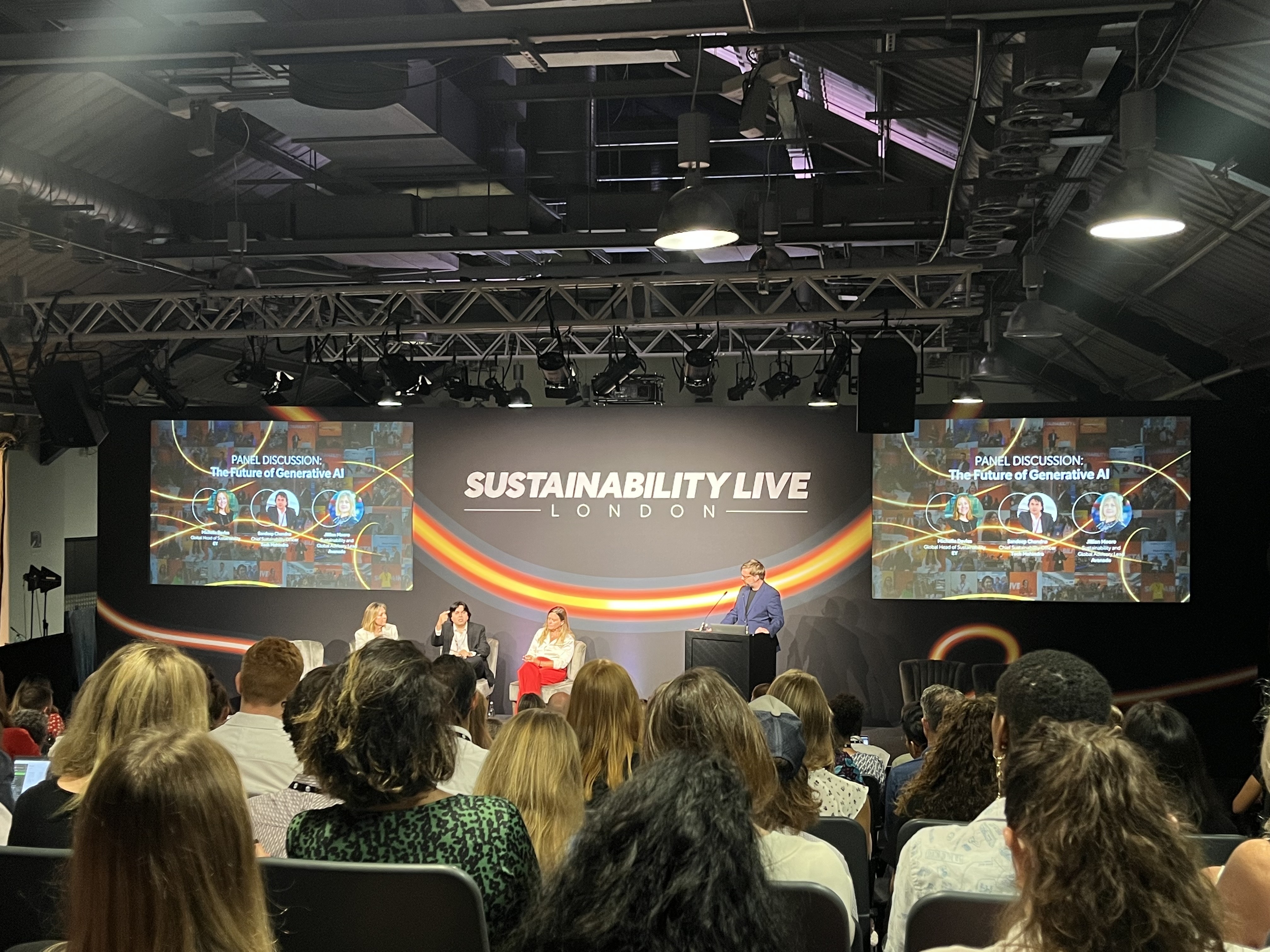7 Key Takeaways from Sustainability Live 2023

We had a great opportunity to attend Sustainability Live 2023 and hear more about how businesses can be doing more to be better to the planet. There were lots of great speakers touching on a wide array of important topics. Here were some of my key takeaways.
1. Collaboration is key
Collaboration is key to tackling the climate crisis. Combating climate change requires endless innovation, as the solutions we have right now aren’t going to cut it. Companies of all shapes and sizes need to collaborate with each other and share ideas for real meaningful change to happen.
2. Data is key to addressing the climate crisis
The worlds data growth is exponential, and with AI it’s expanding even faster - this data is being used by more people from more places than ever before. We need to come up with innovative solutions on how we can manage this growth, what data we need, how we use it and how to limit it.
3. Measure before management
Companies need to be measuring their impact before coming up with and implementing solutions. Lots of big companies are collecting data around sustainability that is open source and readily available. Companies need to hold themselves accountable and take honest measurements of their actions and then find solutions.
4. Think big, start small
A great technique for setting environmental goals is to come up with a big idea, even if it seems impossible. After that, you can pick it apart, break it down and do tiny things to build up to it. The big ideas are the ones that will make the real change and from there you can work with lots of small ideas that build up.
5. AI for innovation
AI could be huge in the future of innovative ways to tackle climate change, however there are a lot of things to watch out for and there is a debate around wether the ends justify the means. On the one hand, there are risks - such as AI being fed inaccurate data and then making inaccurate predictions and, in turn, coming up with ineffective or even damaging ‘solutions’. There are ethical concerns too, for example, insurance companies in the UK are using AI to predict which houses will be uninsurable in the future due to flooding. This could have serious consequences, such as pushing people out of their homes, however it could also mean giving society the push that it needs to take the climate crisis seriously, and do something about it before it reaches that point - it all depends how we use the data and the information.
6. Education for change
Not only is education key, but educating in the right way is important. For example, giving people facts and figures to make the impact of something more tangible. People are encouraged by figures - e.g. Google found that on Google maps, saying a different route will take 2 minutes longer but save x amount of fuel encouraged people to take the longer route. People like data that they can talk about to stake holders and clients.
7. Interpreting data
If an organisation is working with a lot of things to possibly tackle or cut down on, and it feels overwhelming or it’s hard to know where to start - collect data first and find out what is actually having the most impact. For example, the aviation industry have a lot of factors contributing to a high carbon footprint, so they collected data and found that contrails were an even bigger factor than fuel, so they focused on making contrails less impactful before trying to tackle anything else.
The overarching takeaway from the conference for me was all about collaboration. Without collaboration we can’t implement any of the other suggestions, and we can’t expect to tackle the climate crisis working as individual people or isolated organisations. It was amazing to see so many people who are passionate about making changes across a variety of different industries, and ultimately felt like a really positive experience whilst tackling a very intimidating topic!
If you’d like to learn more about digital sustainability, and what your company can do to make their products better for the planet, then checkout our free Sustainability Toolkit here.
Let's get started

Chat with James
Book a free discovery call with our co-founder to see if we’re a good match for your requirements.
